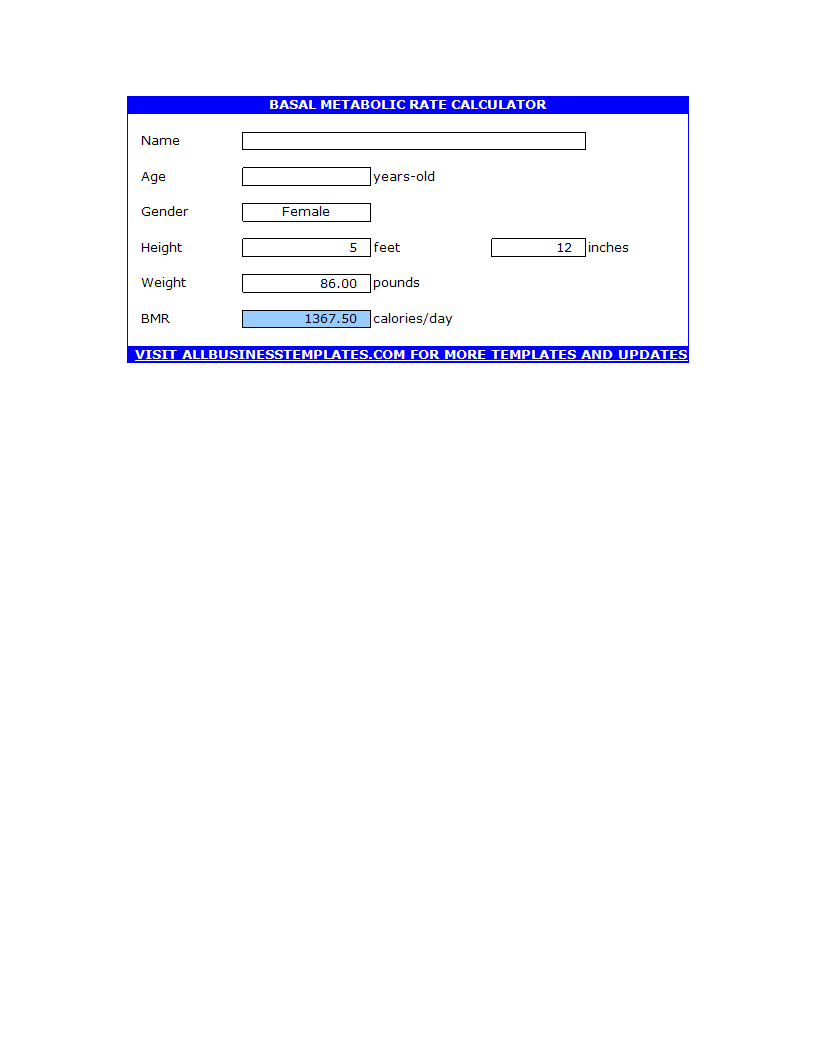


This means you burn fewer calories during the day, which leads to a slower metabolism. The amount of time you stay active in exercises and other physical activity tends to drop as you grow older. This can be due to a reduction in physical activity, but also because the production of growth hormones, testosterone or estrogen also decreases. Both of these components slow down as you grow older, which progressively reduces your metabolic rate.Īn average adult can lose anywhere between 3-8% of muscle mass every decade after turning 30. The mitochondria generate energy for your cells, while the sodium-potassium pumps generate nerve impulses as well as muscle and heart contractions. Here are some of the reasons your age affects your BMR. Here are some of the reasons your age affects your BMR. As you grow older the metabolic rate tends to drop, which in turn lowers your BMR.Âįor instance, one study calculated the BMR of three groups of people:Ĭompared to the youngest group, people aged 60–74 burned roughly 122 fewer calories, while people over 90 burned around 422 fewer calories. The faster your metabolism rate, the more calories you burn. Your metabolism includes all of the chemical reactions required to keep your body functioning.

This way it can be useful to monitor your calorie consumption, especially if you want to keep your weight in check and build muscle mass in your body. How does your age affect your BMR? The Basal Metabolic Rate (BMR) calculates the calories you burn while:ÂīMR helps determine your Total Daily Energy Expenditure (TDEE), therefore it can help you calculate if you are consuming an adequate number of calories as per your lifestyle. The body uses energy only to maintain organs like the lungs, heart, kidneys, intestines, nervous system, liver, skin, and muscles. In simple terms, metabolism is the chemical reaction or conversion of food into energy in your cells. Here’s what you should know about BMR and how you can use it to stay healthy even as you grow older. The Basal Metabolic Rate (BMR) calculates the basic calorie amount you need for the day. One of the biggest questions that would make a difference is this – What is basal metabolic rate? Read on to learn all about it.ĭuring the day, your body burns a certain number of calories while performing its basic functions. But if you are new to the fitness journey, the best way to do it would be to ask yourself a couple of questions related to your body. We all have hectic schedules these days, which makes exercising regularly a mighty task.


 0 kommentar(er)
0 kommentar(er)
